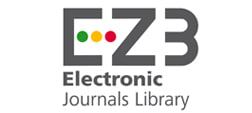Abstract
Nanomedicine is an interdisciplinary field within the developing nano medication delivery system. Ayurveda, a traditional form of healing, employs nanoparticles known as Bhasmas. Nanoparticles can be selectively designed to simultaneously deliver many medications. This innovative functionality enables meticulous regulation of drug release, therefore obviating the necessity for intricate dosing schedules. This enhances patient compliance with treatment. The aim of this work is to synthesise iron nanoparticles using an environmentally friendly process, evaluate the quality of the produced nanoparticles, and examine their possible anti-cancer properties by in-vitro experimental testing utilizing MCF-7 and A-475 cell lines. To produce neem leaf extract, fresh leaves of Azadirachta indica plants are used. The extraction procedure involves suspending the leaves in an Erlenmeyer flask filled with 100 mL of deionized water. The mixture is thereafter agitated and heated for a period of 20 min. The sample was incubated for the length of 30 min at a temperature of 25⁰C. The iron nanoparticle-containing solution underwent centrifugation at 5000 revloutions per minute (rpm) for a period of 15 to 20 min. Our findings align with prior research that have shown a notable decrease in cell viability of A-475 cells and breast cancer cells at inhibitory concentration (IC50) levels of 30μg/mL and 37μg/mL, respectively, when exposed to FeNPs produced using environmentally friendly methods. Green FeNPs exhibited anticancer properties in MCF-7 and A-475 cells, suggesting their potential for therapeutic use in the treatment of lung and breast cancer in humans.
Recommended Citation
Bukke, Sarad Pawar Naik; Bharathi, Arigela; Saraswathi, Tenpattinam Shanmugam; Nettikallu, Yenumula; and Vippamakula, Shanmugam
(2024),
Formulation and Evaluation of In-Vitro Anti-Cancer Activity of Iron Nanoparticles On MCF-7 & A-475 Cells,
AUIQ Complementary Biological System: Vol. 1:
Iss.
2, 21-30.
DOI: https://doi.org/10.70176/3007-973X.1012
Available at:
https://acbs.alayen.edu.iq/journal/vol1/iss2/3
Digital Object Identifier (DOI)
10.70176/3007-973X.1012




















Follow us: